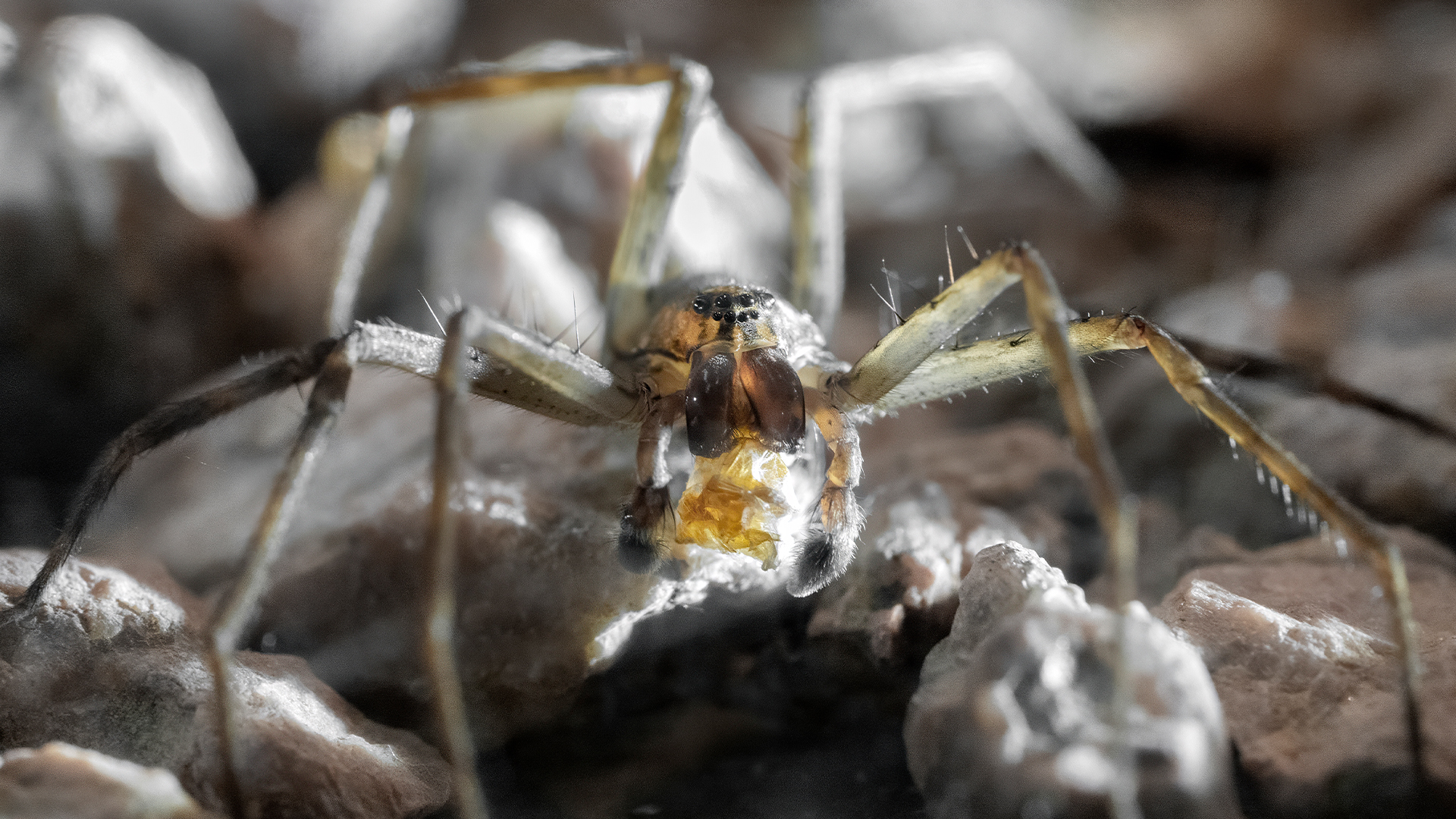When stressed, these male spiders woo mates with empty 'take-out containers' instead of dinner
When times get lean, male spiders may cheat more when wooing females by offering them worthless gifts of leftovers or dry leaves, rather than tasty food.

Get the world’s most fascinating discoveries delivered straight to your inbox.
You are now subscribed
Your newsletter sign-up was successful
Want to add more newsletters?

Delivered Daily
Daily Newsletter
Sign up for the latest discoveries, groundbreaking research and fascinating breakthroughs that impact you and the wider world direct to your inbox.

Once a week
Life's Little Mysteries
Feed your curiosity with an exclusive mystery every week, solved with science and delivered direct to your inbox before it's seen anywhere else.

Once a week
How It Works
Sign up to our free science & technology newsletter for your weekly fix of fascinating articles, quick quizzes, amazing images, and more

Delivered daily
Space.com Newsletter
Breaking space news, the latest updates on rocket launches, skywatching events and more!

Once a month
Watch This Space
Sign up to our monthly entertainment newsletter to keep up with all our coverage of the latest sci-fi and space movies, tv shows, games and books.

Once a week
Night Sky This Week
Discover this week's must-see night sky events, moon phases, and stunning astrophotos. Sign up for our skywatching newsletter and explore the universe with us!
Join the club
Get full access to premium articles, exclusive features and a growing list of member rewards.
Certain male spiders in South America usually give their partners a tasty snack before mating. But in stressful environmental conditions, males may "cheat" in their mating ritual by offering females a useless ball of silk instead of a nutritious meal, a new study has found.
The research shows how spiders may adapt their behavior to reflect changes in their environment.
When a male Paratrechalea ornata spider wants to mate, he'll snag an insect and prepare it for a female, said study co-author Maria Albo, a biologist at the University of the Republic in Uruguay.
Related: Female spiders play dead during sex so males don't have to worry about being eaten
The spider starts by wrapping the insect in silk over and over until it forms a nice, little ball with a juicy treat hidden inside. "And then they start to walk along the river, along the stones," Albo told Live Science.
If a female takes the bait, she'll grab onto the gift with her mouth and slowly digest the silk to reach the food inside. While that's happening, the male mounts the female and they mate.
But some P. ornata males try to mate without going through the hassle of giving a gift. Instead of packaging a piece of food, these males will wrap up something not so tasty, like a leaf or even the leftover bits of an insect they've already eaten.
Get the world’s most fascinating discoveries delivered straight to your inbox.
Albo knew that some males offered "worthless" gifts, but in the new study, published July 27 in the journal BMC Biology, she and her colleagues compared the prevalence of worthless-gift giving in two distinct habitats in Uruguay. One, in southern Uruguay, has a relatively stable climate. The more northern habitat is more affected by El Niño and is a more variable and unpredictable — and, therefore, more stressful — climate for a spider. In addition, the southern habitat had vastly more prey than the northern one did.
The team collected spiders along the river and checked what was inside their silk balls. In the less-stressful, southern population, males carried worthless gifts just 38% of the time. But in the more-stressful, northern population, males had worthless gifts a whopping 96% of the time.
Albo offered a couple of theories that might explain this discrepancy. For one, spiders in the stressful habitat might have to be more focused on survival, because the amount of nearby food is lower. So, the stressed-out males may be more tempted to keep the food to themselves instead of giving it away to females.
In addition, spiders in the stressful habitat were smaller, perhaps as a result of having less food around. So smaller-bodied females may not need any extra food to stay healthy. But larger females in the less-stressful habitat may need the extra food the males provide to produce healthy offspring.
These kinds of gifts given before mating, known as "nuptial gifts," occur in many different animals. In many scorpionfly species, males offer females either a dead insect or a ball of saliva to eat while they mate. Male great gray shrikes (Lanius excubitor) — a species of small, carnivorous bird — often offer their potential mates a dead mouse or lizard. And katydids have combined mating and feeding — as they copulate, the males will also provide the females with a "spermatophylax," a gelatinous ball of nutrients that the females will eat after they've finished mating.

Ethan Freedman is a science and nature journalist based in New York City, reporting on climate, ecology, the future and the built environment. He went to Tufts University, where he majored in biology and environmental studies, and has a master's degree in science journalism from New York University.
 Live Science Plus
Live Science Plus










